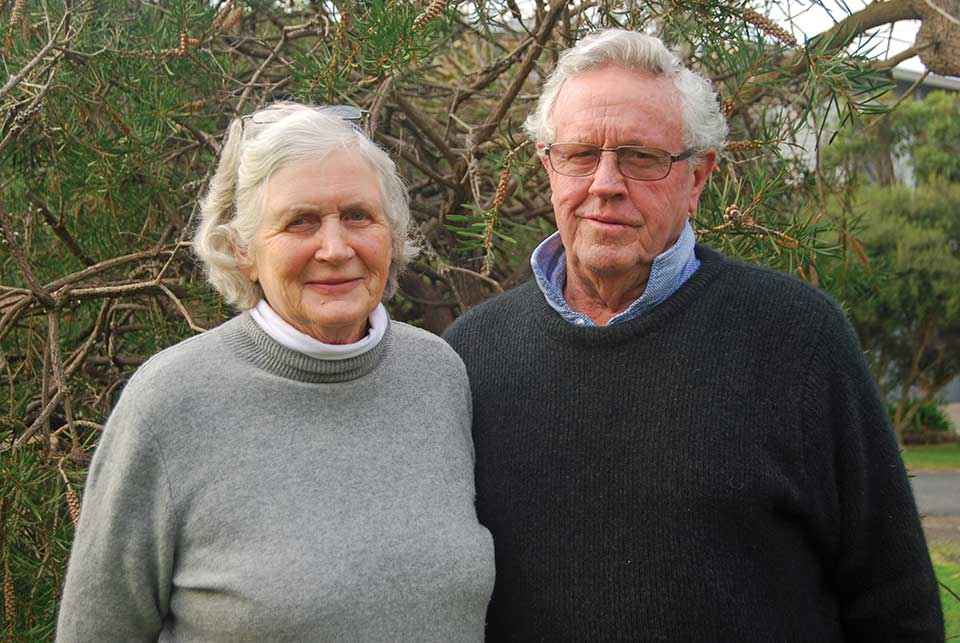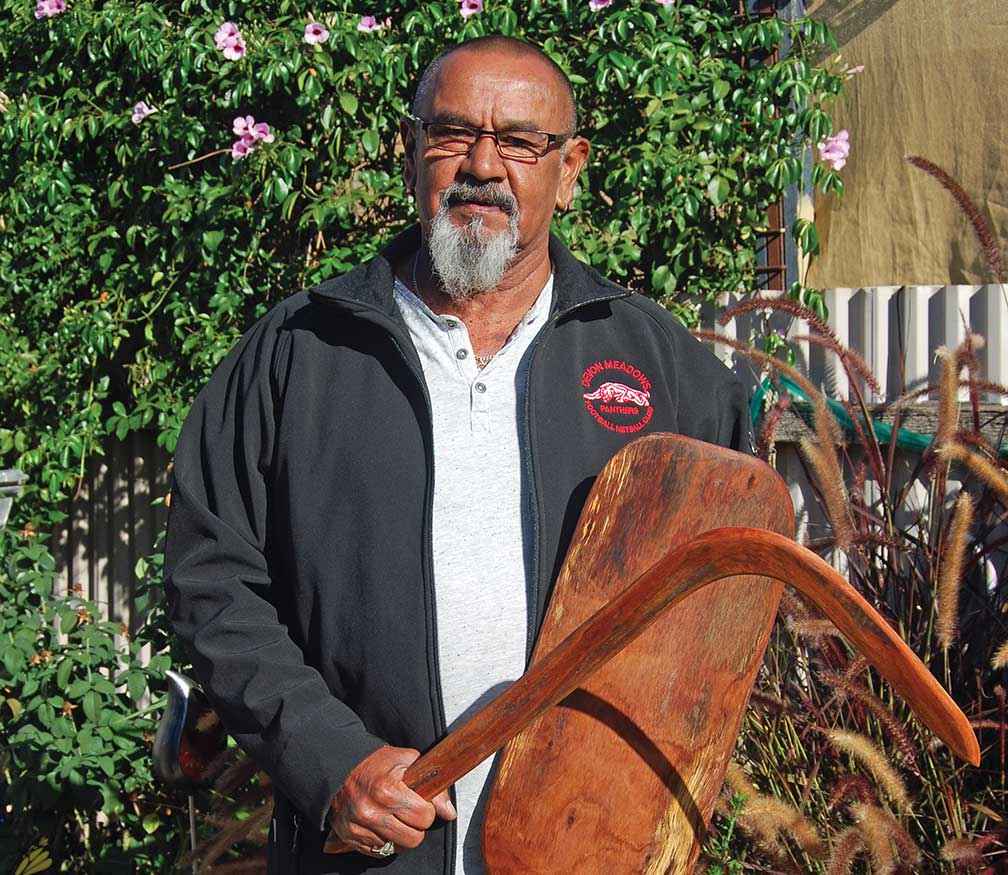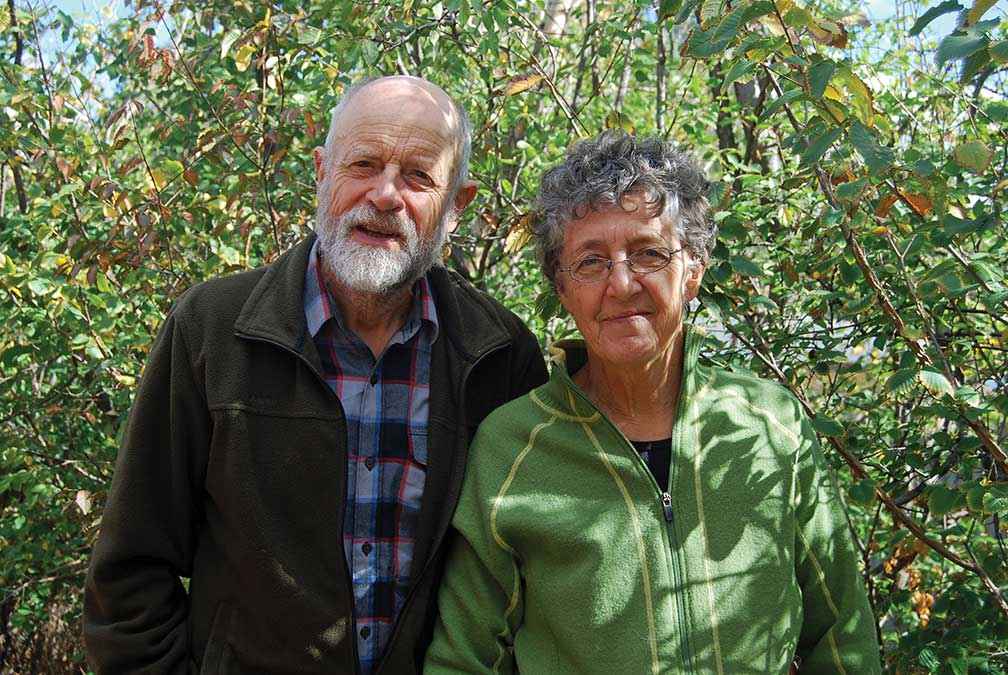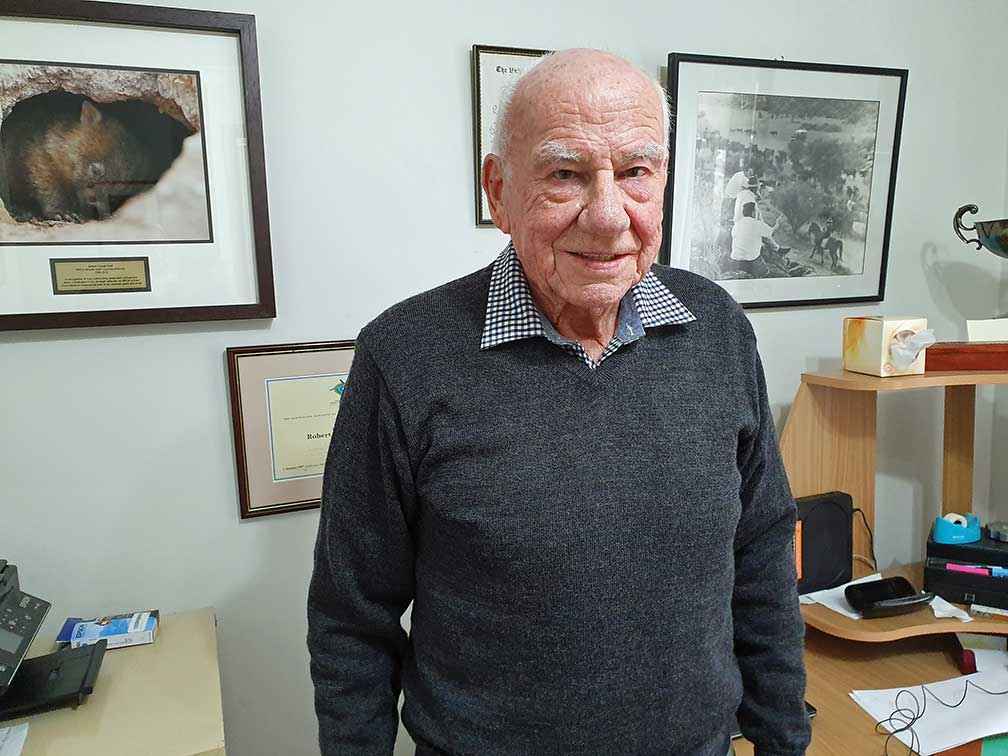Victorian Landcare Magazine - Summer 2020, Issue 77

“Alone we can do so little; together we can do so much.” – Helen Keller
The Landcare Voices Oral History Project got underway in 2016 as part of the 30 years of Landcare celebrations in Victoria. There was a realisation that age was catching up with some of our Landcare movers and shakers, not to mention some of the pioneers who were unwell or had already passed away. The plan was to capture a range of voices and stories from people who were part of Victoria’s early Farm Tree and Landcare groups.
The project management committee of Chair Sue Campbell OAM, Ed Adamson, Alex Arbuthnot AM and myself, along with Susi Johnson and Kelly Way from Landcare Victoria Inc. hunted for a suitable interviewer – someone with a good sense of the land and country people, along with a style of interviewing that would accommodate regional identities telling their story in their own way.

Above: Educator and skilled bushman Allan Murray shared his Aboriginal heritage and knowledge of working with the Warby Range Landcare Group in one of the interviews.
Funding from LVI allowed us to appoint Peter Evans, an experienced private historical research and heritage services consultant. We were delighted by the rich history captured in the first interviews and through additional funding provided by LVI were able to extend the number of interviews. By the end of 2019 some 20 Landcare voices have been recorded.
There is a great deal of wisdom in the interviews and I encourage everyone to have a listen.
As well as anecdotal local information the interviewees reveal the environmental, social and cultural changes that have taken place in Victoria as Landcare has developed.
Several of the subjects had worked in departments and agencies so there is some good big picture information too. As is the way with Landcare, every interviewer credited and celebrated a whole host of other Landcarers they had worked alongside. We are keen to follow up on these names and take the project into a phase two.
Capturing an area’s oral history is a great project for local Landcare groups, networks and historical societies. It’s important we don’t lose the stories of the land; there’s so much to learn from them.

Above: Terry and Fay White shared their experiences of working with Waterwatch, Saltwatch and Ribbons of Blue from the 1970s to the 1990s. Fay wrote, sang and recorded many tree planting and environmental songs over that period.
There are many ways to make the recordings and there is the potential to engage a local education entity to work with your group. They are often looking for projects for students and can have access to equipment. There’s also no reason to hesitate and just getting started with what you have at hand – smart phones can be used to record interviews and the files saved to computers for editing and upload to the web. All of the interviews are available on the Landcare Gateway. Go to landcarevic.org.au and search for Landcare voices. The current committee stepped down in December 2019 after three years with the project.
If you would like to be involved with the phase two committee contact info@lvi.org.au for more information.
Pam Robinson OAM was co-founder of the Warrenbayne-Boho Land Protection Group Inc., served on the inaugural National and State Landcare Advisory Committees and the first Municipal Association of Victoria Environment Committee.

Above: Bob Carraill was interviewed about his experiences in many senior agency roles in agriculture, industry services and salinity, before joining the Victorian Farmers Federation as director of policy in 1987.
• Test your recording equipment before you get to the interview, set-up and, once you have a quick voice level, leave it alone. Find somewhere quiet for the interview and try and avoid interruptions. Get a good photograph of the subject after the interview.
• Try to get the interview subject to talk about their early life and relax into the conversation. Their early life will influence their attitudes to the world and inform their values.
• Don’t try too hard to lead the interview in a particular direction unless it’s going way off track. If you do, you might miss something important.
• Dates can be important. In general, women remember dates better than men.
• If you are confused by something, try and clear the matter up straight away, otherwise you may forget.
• If you are not genuinely interested in your subject, you will not get a good interview. Some people are natural storytellers and these interviews can be a joy. Other people are not natural storytellers and these interviews will be hard work. About an hour is a good length, any longer than that and the subject will tire.